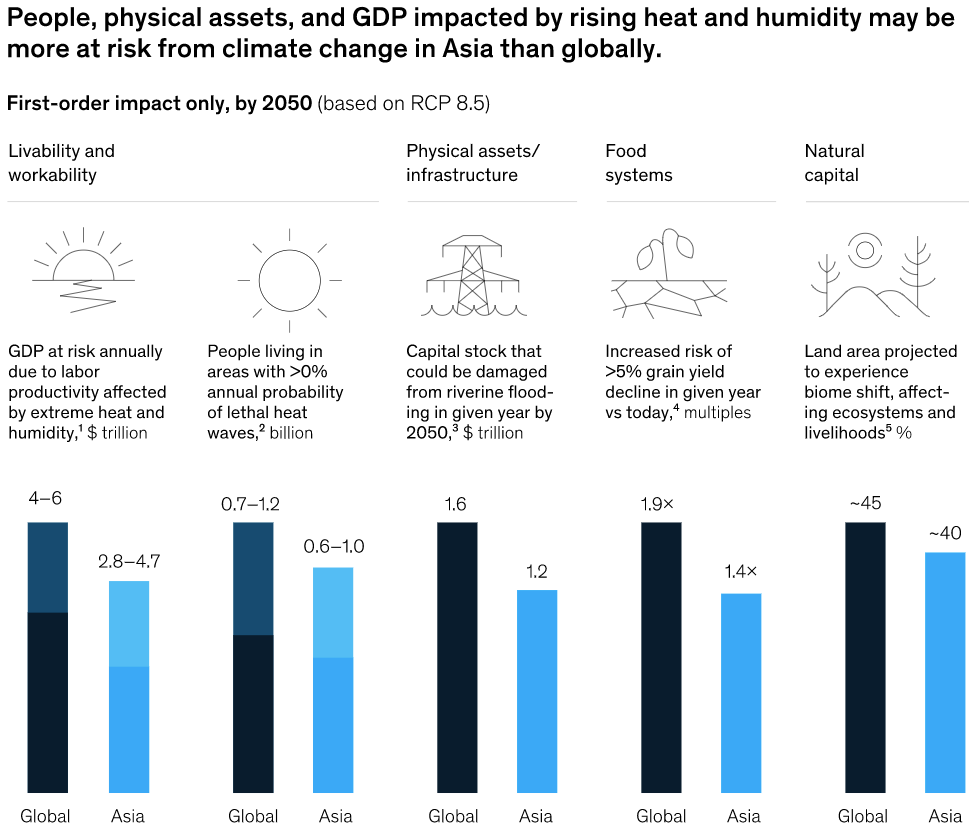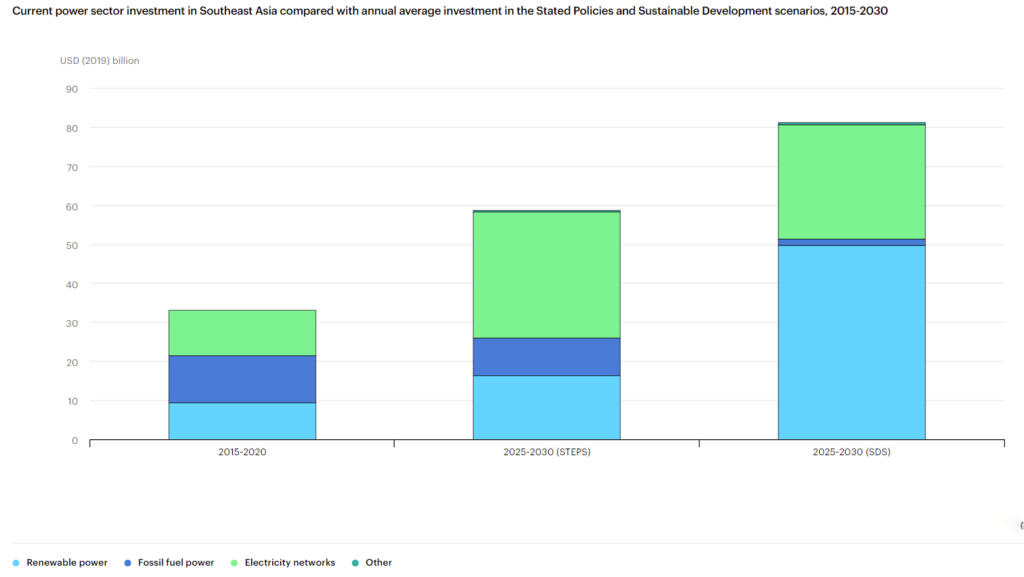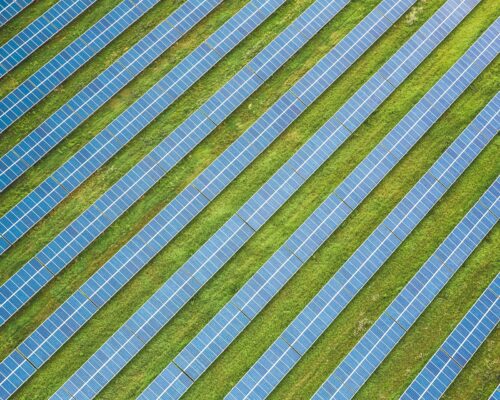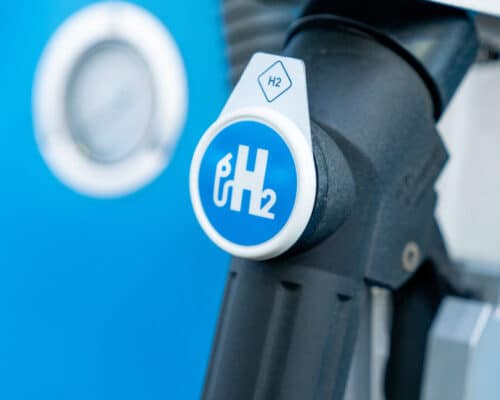Protecting Asia’s Economy by Transitioning to Clean Energy
A consequence of climate change is the increased likelihood of record-breaking floods. Source: John Wark/Reuters
23 September 2021 – by Eric Koons
The world is transitioning to clean energy through international agreements and cooperation, and Asia plays a significant role.
Asia accounts for over half the world’s population, with a quarter of its economy. The region will likely drive energy demand this next decade.
In Asia, per capita, energy demand has grown by 18% over the past decade, compared to a 4.8% decrease in advanced economies.
The region’s Energy Transition Index, which measures energy transition progress, has improved by 6% over the past decade. Furthermore, despite the current dominance of fossil fuel-related industries throughout Asia, especially coal fired-energy, its clean energy transition opportunities continue to grow.

Asia is at Risk of Climate Change Impacts
Based on projected climate change scenarios, Asia is at risk of numerous climate-change-related dangers. This is particularly true if it fails to transition to clean energy by 2050 effectively.
- Rising temperatures affecting outdoor working hours – between USD 2.8 to USD 4.7 trillion of annual GDP is at risk
- Increased flooding – estimated USD 1.2 trillion of capital stock will be damaged per year by 2050.

How Asia Can Reduce Climate Risk
To mitigate and adapt to these climate-related risks, Asia needs to invest USD 1.7 trillion in infrastructure annually until 2030.
Approximately 2% (USD 40 billion) from these annual infrastructure investments needs to be allocated to climate-related risk adaptation.
Asian Countries Are Investing in Renewable Energy
Luckily, numerous investment opportunities have been emerging, and investment levels appear to be rising. ASEAN member states have collectively committed to achieving 23% of total primary energy demand from renewable energy sources by 2025.
The world’s second-largest economy, China aims to secure 25% of its primary energy from non-fossil fuel sources by 2030. Moreover, clean energy transition investments in China totalled USD 134 billion in 2020, the largest of any country (the United States was second with USD 85 billion).
Japan was also in the top five countries investing into energy transition investments in 2020, with USD 27 billion (fourth overall).

Benefits for the Clean Energy Transition
The clean energy transition will benefit various stakeholders, including governments, residents and investors. A 2020 McKinsey report identified how government spending on renewables and energy efficiency creates more jobs (compared to the fossil fuel industry) by a factor of three.
Additionally, residents and governments can avoid the economic costs of fossil fuel air pollution. Combined, these costs total USD 1.05 trillion annually for China and India. Moreover, Asian countries will enhance their capabilities to mitigate and adapt to growing climate-related risk exposure.
World Economic Forum studies indicate that returns can range by a factor of three to eight for every dollar invested into the energy transition.
Asia Will Continue to Play a Major Role in the Clean Energy Transition
Accounting for approximately 45% of global greenhouse gas emissions, Asia’s role in the energy transition is essential.
Asia’s climate-risk related GDP impacts account for over two-thirds of total global GDP impacts. It requires significant annual investments to reduce these risks.

Asian governments and investors appear to be slowly heeding the warning. They are starting to take action to facilitate Asia’s energy transition opportunities.
Furthermore, numerous stakeholder benefits come with the energy transition. Benefits include job creation, avoiding air pollution costs, and high investment returns.
With multiple positive impacts related to clean energy, Asia must continue facilitating its energy transition.

by Eric Koons
Eric is a passionate environmental advocate that believes renewable energy is a key piece in meeting the world’s growing energy demands. He received an environmental science degree from the University of California and has worked to promote environmentally and socially sustainable practices since. Eric’s expertise extends across the environmental field, yet he maintains a strong focus on renewable energy. His work has been featured by leading environmental organizations, such as World Resources Institute and Hitachi ABB Power Grids.
Read more



